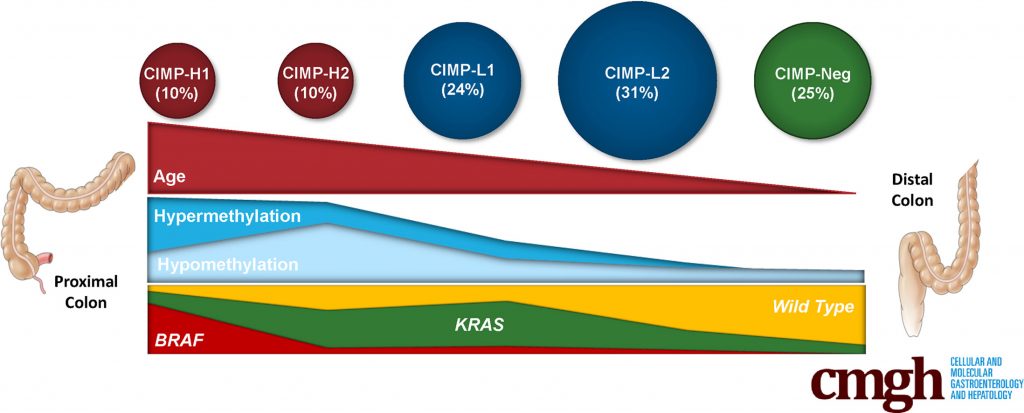Five subtypes of colorectal adenocarcinoma have been identified by Queensland researchers based on increases in DNA methylation with age.
Researchers at the QIMR Berghofer Medical Research Institute in Brisbane have shown that there are five clinically and molecularly distinct subgroups of colorectal cancer based on CpG island methylator phenotype (CIMP).
They identified subtype clusters using tissue samples obtained from 216 patients with colorectal cancer treated at the Royal Brisbane and Women’s Hospital and validated these subtypes in an additional cohort of 374 cancer tissue samples.
“We observed a striking association between genomic methylation and age, which further supports the investigation of the epigenetic clock in serrated neoplasia risk,” they wrote in the journal Cellular and Molecular Gastroenterology and Hepatology.
“Our interrogation of the coding regions of epigenetic regulatory genes shows that they frequently are mutated in colorectal cancers and this may be partially influenced by the degree of genomic methylation. Our analyses have identified potentially druggable vulnerabilities in cancers of different methylation subtypes.
“Inhibitors targeting synthetic lethalities, such as SWI/SNF component inhibitors for those with ARID mutations, should be evaluated because these agents may be clinically beneficial to certain patient subsets,” they concluded
 Senior study investigator Associate Professor Vicki Whitehall, from QIMR Berghofer’s Conjoint Gastroenterology Laboratory, said it was a novel finding that changes in methylation of bowel cancers closely tracked with a patient’s age.
Senior study investigator Associate Professor Vicki Whitehall, from QIMR Berghofer’s Conjoint Gastroenterology Laboratory, said it was a novel finding that changes in methylation of bowel cancers closely tracked with a patient’s age.
“This may indicate that bowel cancers occurring in younger and older patients may have different underlying causes,” she said.
“This study suggests we should now focus on how methylation – the switching on or off of genes – causes these five different subtypes of bowel cancer and look for treatments that reduce DNA methylation to reduce the cancer risk.”
Co-investigator Lochlan Fennell, a PhD candidate at the Institute, said previous studies had linked DNA methylation to ageing and bowel cancer but this was the first study to identify five different subtypes of bowel cancer based on this process.
“Our study indicates that the different genetic changes that cause cancer happen at different ages and that might have implications for different treatments, because we know some types respond better to immunotherapy and other targeted therapies while other types are resistant to these therapies.”